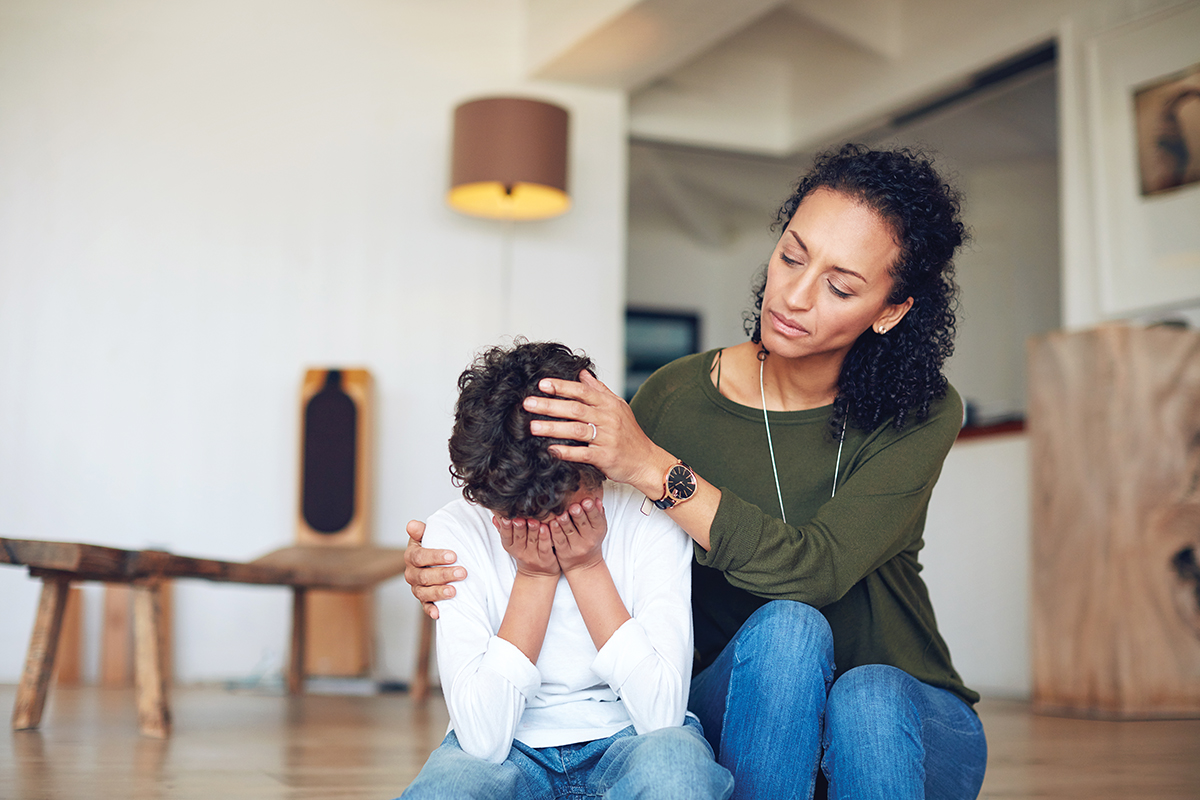Does Your Child Have Health Anxiety?

It’s purely natural if you go into significant inform every single time your kid will get a sore throat these days. We have all been impacted by the psychological ups and downs introduced on by COVID. “We’ve absolutely observed an increase throughout the board with young ones pertaining to well being anxiousness,” says Kelly Gilrain, Ph.D., director of psychological solutions and behavioral drugs at Cooper University Wellness Care in Camden. “There’s a lot of anticipatory panic about what could happen or what if anything happens.” Ought to you fear your youngster is suffering from hypochondria? It turns out hypochondria is an out-of-date term that refers to health panic that inhibits a person from currently being capable to perform generally.
Here’s how to assist your kid deal with wellness nervousness in a favourable way:
Observe FOR Signals YOUR Little one IS Struggling
You might verbalize when you’re stressed, but it is normally a distinctive tale with children. “Anxiety does not search the same way in young ones, particularly individuals 10 several years outdated and young,” claims Anna Malia Beckwith, MD, assistant vice current of ambulatory health-related methods and portion main of developmental conduct pediatrics at Children’s Specialised Healthcare facility in New Brunswick. “Kids may be irritable or have temper swings, or they may perhaps have actual physical signs and symptoms including problems or upset stomachs.” Center schoolers and teens may possibly also be moody, but they are normally extra self-knowledgeable and may perhaps say they’re nervous or continuously check their symptoms on the net. Observe out for school performance challenges or social isolation, when a youngster does not want to consider part in athletics, band or other functions, claims Gilrain.
Present Little ones HOW TO COPE
Some stress and anxiety can be fantastic for us. “It aids us make swift decisions, these kinds of as having out of the way of a rushing car or kicking our brains into equipment in advance of a check,” suggests Gilrain. “The objective is not to get rid of worry from our lives, which is difficult, but understanding how to deal with stress filled predicaments in an productive way.” For instance, demonstrate young children there are some items we can do, these as donning masks and washing our hands, to feel much more in handle.
If your child is anxious, request: “Is one thing bothering you?” It is high-quality to be genuine about your personal feelings. “We sometimes come to feel like we have to protect our young children and not discuss about our personal fears,” says Beckwith. “But it’s far better to address them and demonstrate your kids how to tackle these emotions. You want children to see that problems are normal, but that you really don’t permit anxieties choose above.” Assisting youngsters find out they can tackle awkward feelings now will aid them produce resilience for a lifetime.
Keep IN THE Moment
Pay back consideration to your thoughts and feelings. Nervousness of any form is contagious, so if you discover oneself receiving ramped up, end and choose a deep breath. Then problem your reaction: Is this actually possible? “Your young ones are seeing you,” suggests Gilrain. “Show them that we do not have to freak out every single time another person has a sniffle, but that we can acquire proper steps.”
Get A Break FROM Screen TIME
A frequent barrage of adverse stories is not great for any one, and frankly, it is effortless to go down a rabbit gap as you doom scroll by means of the headlines. “You have to uncover what is acceptable and proper for your relatives in phrases of restrictions,” says Gilrain. Then come across a unique supply or two of news you believe in. With more mature young ones, you can say some thing these as, “I’m only studying news at the time a day,” and clarify why to travel home the stage that boundaries are handy. And product the behaviors you want your children to emulate: At meal, phones should not be on the table, and at night time, demand devices in a central location, fairly than in bedrooms.
Adhere WITH ROUTINES
It’s important to generate composition and predictability. Keep typical bedtimes, foods and spouse and children perform time, even if it’s only a swift walk immediately after dinner, claims Gilrain. It’s also essential to make guaranteed children (and you!) are connecting socially with good friends. Make a cellphone connect with to connect with a pal each and every 7 days, chat and walk with neighbors or enjoy a board sport with your young children.
KNOW WHEN TO GET YOUR Boy or girl Help
When it is comprehensible that everyone—kids included— may possibly be a minor anxious about acquiring ill, your little one need to however be ready to functionality on a working day-to-day basis. If your baby is equipped to go to college, take part in actions and is sleeping and having as usually, they are probably just high-quality. “But if there is anything out of the regular for your youngster or that looks like a preoccupation with health, this sort of as wanting to go to the physician frequently or don bandages all the time, it is time to search for added assist,” suggests Gilrain.
“If your baby is paralyzed by nervousness, refuses to go to school, has more recurrent meltdowns, is self-isolating, or seems to have obsessive feelings about COVID, it is time to get extra assistance,” states Beckwith. Access out to your pediatrician or university counselor to obtain neighborhood psychological health assets. The silver lining is that by helping your young children determine out how to tackle nervousness productively, you are also getting ready them for existence in the authentic world.





